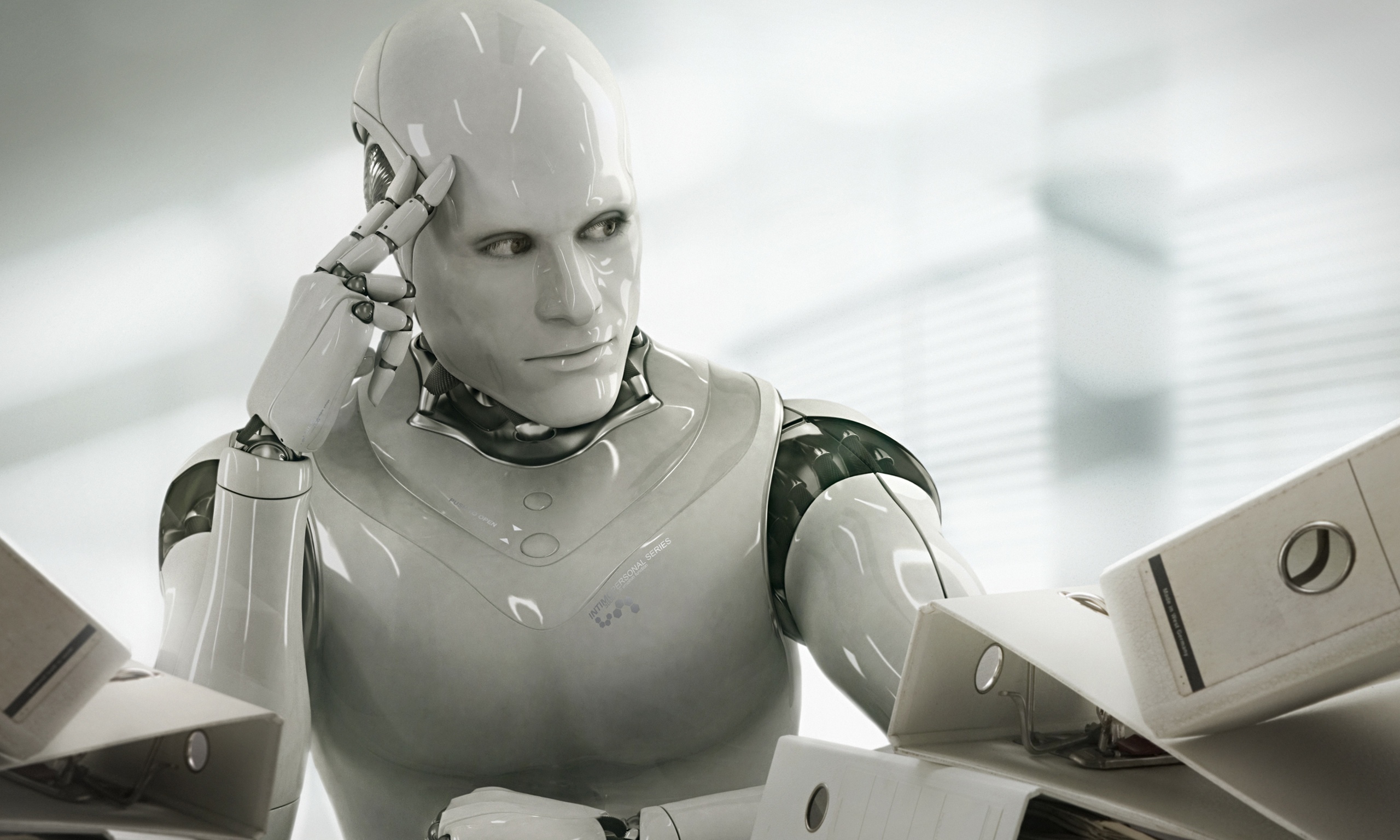
Robots are coming – and coming fast. Low cost, “soft” robots that are able to work safely alongside humans will soon transform workplaces large and small. But what will be the effect on the human workforce?
Robot workers never take a day off, they never get tired, they never get sick, they never complain, they never show up late, they never waste time surfing the web and they always do what bosses tell them to do.
Robot technology has recently advanced to the point where it is becoming cheaper to buy robots than it is to hire humans for a vast variety of different tasks. From the narrow standpoint of economic efficiency, this is a good thing. But what happens to society when robots are able to do just about everything less expensively and more efficiently than humans can? How many people will be put out of work and where will new jobs come from?
There will be 10,000 robots working to fulfil customer orders in Amazon’s American warehouses by the end of 2014. What happens if every company starts using these kinds of robots for manual work? What will that do to ordinary warehouse jobs?
To many business leaders this prospect may sound very exciting. But what if a robot took your sister’s job, or the job of another close family member? Would it be exciting then? And is mass unemployment the only likely outcome of the robot revolution? If it is, the negative impact on the wages of those still in work will be severe.
Of course, nobody is suggesting we ban robots. And you can’t force companies to hire humans rather than robot workers. But we could potentially have major problems in our society as jobs at the low end of the wage scale quickly disappear.
Restaurants in the USA and elsewhere are now going over to automated service and, in a widely cited paper published last year, University of Oxford researchers estimated that there is a 92 per cent chance that fast-food preparation and serving will be automated in the coming decades. The same report predicted that overall 47 per cent of today’s jobs will disappear because of automation in the next 20 years.
In ten years or so commercial drivers could be replaced en masse by self-driving cars, buses, trucks and drones. In food preparation, there are start-ups offering robots for bartending and gourmet hamburger preparation and a food processing company in Spain now uses robots to inspect heads of lettuce on a conveyor belt, throwing out those that don’t meet company standards.
In China, iPhone manufacturer Foxconn is in the process of buying one million robots to replace human workers. The company is reportedly paying $25,000 per robot – about three times a Chinese worker’s average salary – and they will replace humans in precision assembly tasks.
Robots seem to have many advantages over humans. Humans are messy, they always want more money, and having many of them in one factory is often a recipe for unrest. But what happens after the manufacturing halls are emptied of young men and women workers and are instead full of whirring robots?
Even jobs requiring “the human touch” may be taken over by robots. Imagine you’re 85, and living alone. Your children are halfway across the country, and there are no close friends around. You have a live-in aide – but it’s not human. Your personal robot reminds you to take your medicine, monitors your diet and exercise, plays games with you, and even helps you connect with family members on the internet.
And, as this article was being prepared, a new robot was launched for the building and construction industry to take over some of the heavier jobs currently done by humans.
Our workplace is changing at a pace that is almost inconceivable.
John Maynard Keynes, the most influential economist of the 20th Century said, “When change is radical, the only antidote is radical thought.”
Keynes made that observation in 1930, the same year that he predicted that there would be “widespread unemployment caused by technology” by 2030. Will his long-range forecast turn out to be accurate?
If we employ radical thinking to the arrival of low-cost robot labour might we not be able to expand output instead of just cutting human jobs? And might we not be able to create new roles of “robot facilitator” in which humans oversee a robot worker’s every need – e.g. maintenance, upgrades and creating innovative new workflows suitable for robot labour?
Is it possible that new economies in manufacturing facilitated by robot labour will bring small-scale manufacturing back to North America and Western Europe? I think this is very likely and a re-birth of small-scale domestic manufacturing will create thousands of new jobs for humans.
And the robot industry itself is creating new jobs. A new report from the International Federation of Robotics (IFR), suggests that for every robot deployed, 3.6 new jobs are created. By 2016, robotics is predicted to account for an extra 110,000 jobs in the electronics sector, globally.
It is clear that robots may take some existing jobs but it is also likely that many thousands of completely new jobs will be created. Robots will bring even more change to our society but they also promise to bring significantly increased prosperity.
Welcome robots.
